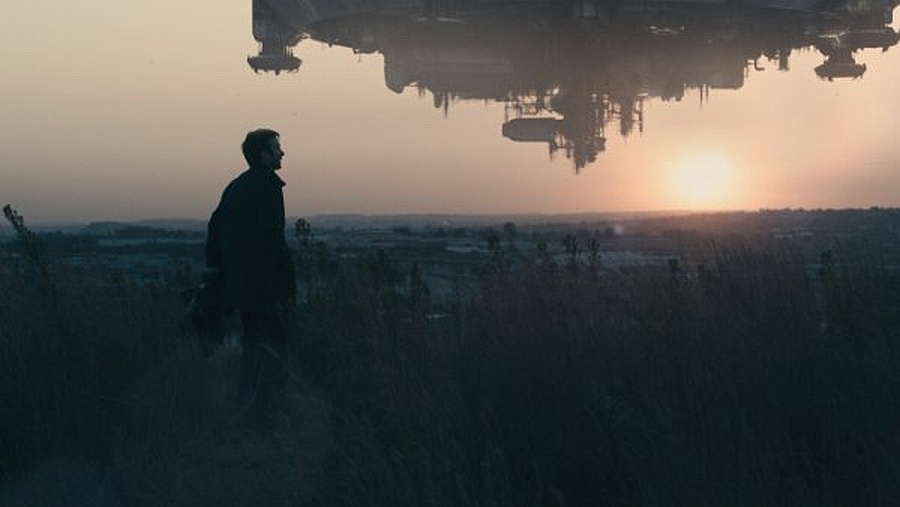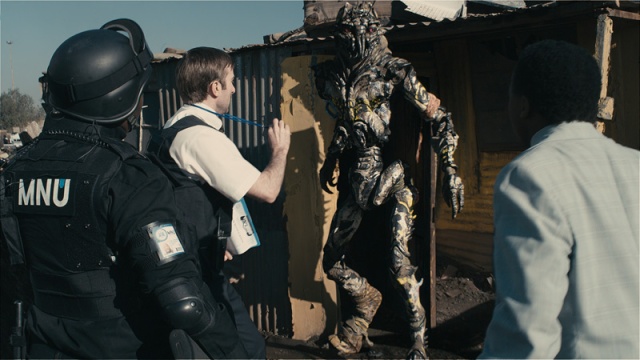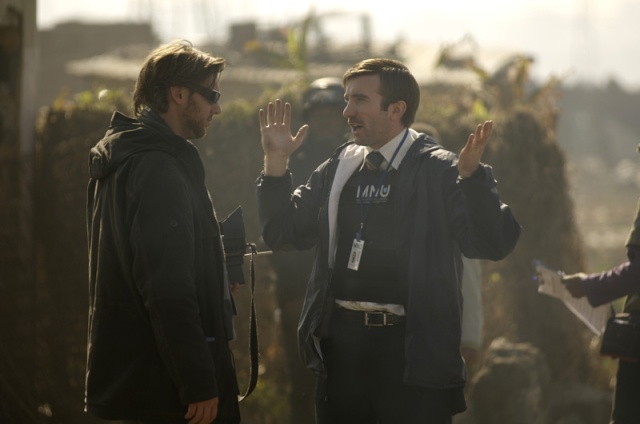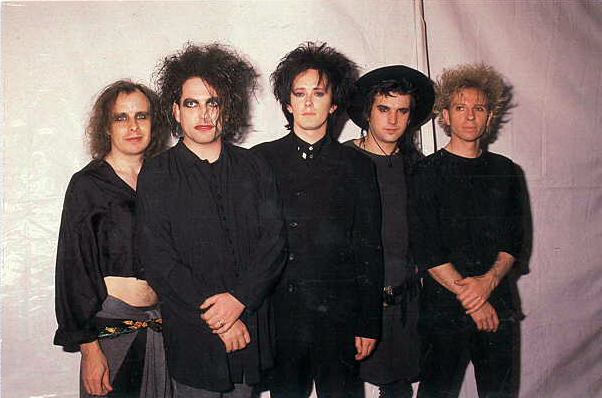 MUSIC
MUSIC In Which There's A Girl In New York City Who Calls Herself The Human Trampoline
 Friday, April 8, 2011 at 11:35AM
Friday, April 8, 2011 at 11:35AM 
Where We All Will Be Received
by NELL BOESCHENSTEIN
I know a six-year-old in Berkeley who starts each day by asking his parents to “put on the rock & roll!” and they know he means Graceland. It’s a record that refuses to turn off.
—Daniel Wolff in 1988
When my sister who had been living in Colorado for six years finished chemotherapy treatments for breast cancer, she and her husband decided it was time to move closer to family. He went ahead of her to start work as she stayed behind to pack; between the two of them they had collected enough stuff to make the move back to where she and I had grown up in Virginia not a simple matter of throwing worldly belongings in a car and gunning it across I-70. It was a move that required preparation and, to make the trip itself easier, we decided I would fly out from New York and drive east with her.
We couldn’t afford to make a real road trip of it, but we did allow ourselves the luxury of one tourist stop along the way, provided it was not too far afield. It wasn’t much of a dilemma: a brief consult and Graceland was the destination we mentally marked on the map. The inaugural album for the drive was a no-brainer. As the second song reminded us of how the Mississippi Delta could shine like a National guitar, the Rockies receded in the rearview mirror and the Denver exurbs dissolved into grassland. We were going to Graceland, Graceland in Memphis, Tennessee. We were going home.
 photo by edie baskin
photo by edie baskin
Paul Simon’s Graceland celebrates a quarter century this summer: it hit your parents’ cassette player in August 1986. I was six and my sister was twelve. We were both still single and life was great. This means that Graceland is now the same age that “Will You Love Me Tomorrow” by the Shirelles, “Stand By Me” by Ben E. King, “Hit the Road, Jack” by Ray Charles, and “Are You Lonesome Tonight?” by the King (of Graceland) were when Simon’s album came out. I name only songs because in 1961 albums as we understand them today hadn’t yet been invented. I have not come here to complain about time but to make the point that dues have been paid. Graceland at 25 has reached the echelon that boasts only the most rarified classics.
When he sat down to record the album Simon was struggling creatively. Hearts and Bones, released three years earlier, had been welcomed to the sound of popular and critical crickets. A few years before officially beginning work on it someone had sent him a cassette of umbaquanga music (a genre of South African music with Zulu roots). He had played the tape in his car, been thrilled by it, and subsequently fascinated by the rhythms and culture he heard in the music. He then recruited renowned African musicians to work with him — Ladysmith Black Mambazo, Youssou N’Dour, and Miriam Makeba — as well as the likes of Linda Ronstadt and his childhood heroes, the Everly Brothers, and Graceland came to life. Simon has often said that American popular music of the 1950s was where he found his original inspiration and in the liner notes of Graceland he observes that in umbaquanga he heard rhythms and a musical sensibility that recalled for him that boyhood soundtrack. As soon as the album was released Simon was back on top. It won the Grammy for Album of the Year in 1986, eventually sold more than fourteen million copies, and Rolling Stone called it “the whole world’s soundtrack.”

In the first few months and even years after Graceland established its place on the charts, it provoked controversy and accusations of colonialism. Some of its recording sessions — the ones that took place in Johannesburg — violated the cultural boycott of the South African apartheid regime. While Simon was on record as ardently anti-apartheid, he perversely claimed the album could somehow not stand as a political document, a claim that sounded defensive and disingenuous given the album’s underlying themes of a family of man that crosses cultural, political, and racial boundaries. His attitude seemed to be that, despite the very real ghosts haunting the album’s inspiration, as he sang in the album’s title track: “Maybe there’s no obligations now.” Simon argued that no matter the content, art and politics remained separate and that his art consistently abided by boundary lines — that if his art was about anything it was about relationships. Some bought this posture, others (such as the United Nations Anti-Apartheid Committee) did not.
The violation was tempered by the fact that the album did afford the African musicians on it unprecedented exposure in the West. While Simon claimed he was careful to give credit where it was due to his collaborators, rumors circulated that he was a song stealer, and would pick up riffs he heard African musicians working over in the studio and incorporate them into his compositions. Whether this constitutes stealing per se, however, is open to interpretation. Like some of the best songwriters — from Woody Guthrie and Bob Dylan to Jay-Z — Simon is a master of musical collage, adept at taking what he hears in a cultural vernacular and incorporating it into his work. Regardless, the album has been identified as breaking the dam for the world music trend, now responsible for the Putamayo CDs sold at your corner Starbucks.

Details of its making and initial reception or controversy aside, today Graceland is the kind of album that, when a friend posts the question “Don’t I know you from the cinematographer’s party?” as her facebook status, within an hour there’s a comment thread 20 lines long. “There’s a girl in New York City who calls herself the human trampoline,” someone writes. “And sometimes when I’m falling, flying and tumbling in turmoil I say, ‘Oh, so this is what she means,’” writes another. “Aren’t you the woman who was recently given a Fulbright?” chimes in a third. The concluding comment hung for days in the virtual air of my facebook homepage: “Losing love is like a window in your heart. Everybody sees you’re blown apart.” Robert Christgau once remarked that Paul Simon “writes like an English major” and Christgau meant that as a not-so-veiled swipe. Christgau would have done better to stick to critiquing what he was paid to because Simon’s lyrics have stood the test of the time.

Graceland has surpassed form and virtuosity to become a touchstone, a thing we go to when we need to be reminded of who we are, where we come from, what we’re about, the things we have in common. In the title song, the place of Graceland is never reached. That truncation is significant because the larger sense of the song — of the whole album, really — is that Simon’s Graceland is about the journey, the search for the very grace of the lands — within us and without — themselves. It’s also one of the only albums I can think of that belongs as equally to my parents’ generation as to my own.
Context and time do sometimes matter. The Paul Simon who, on a bus en route to New York City told his sleeping girlfriend that he was empty and aching and he didn’t know why, that Simon belongs to our parents. My generation may love him but he’s not ours. The Simon who is soft in the middle (or at least feels an affinity for men who happen to be), however, the one who reminds young women of money, who has been divorced and has a kid to prove it, and who has the means to catch a cab uptown and take it all the way downtown talking dispassionately while doing so about the comings and goings of breakdowns, that Simon belongs to us as much as he does to our folks because he is our folks. Not our folks the way they were before we were born, but the way they were when we first knew them, as they were losing their edge and feeling maybe a little insecure about that loss; our folks as we knew them when we ourselves were entering that era of childhood which finally allowed for reflection and the retention of memory and for the level of awareness that clued us into the fact that a baby with a baboon heart was something to wonder at and to then distantly — vaguely — mourn when she died three weeks after her baboon heart first beat inside her body; this was our folks the way they were when they were trying to raise us right: to say please and thank you and to only send food back under dire circumstances; the way they were when we really saw them for the first time. At least, in retrospect. Now that we’re grown, that first introduction lingers. We also recognize not just our parents in the words of those songs, but ourselves and our own impending midlives that loiter like shortening shadows on the horizon.
Likewise, I have a hunch the album means what it does to our parents because it captures who they were at that moment in time. Here was this man who’d been young with them and who had put into words and music what it was like to be young when they had been young. Here was that young man all grown up and growing older still, struggling with a career slump and aging and still exploring this stuff of life by funneling it into words and music. And that’s just it: Paul Simon was never a rock star. Hell, he wasn’t even a folk star. You can see it in the clips of the concert he put on in Zimbabwe after Graceland was released: his best dance moves are worse than your uncle’s worst dance moves at your sister’s wedding. He can’t dance and he can’t preen, but he can write. He is a startlingly intelligent and creative Schmo of sorts, and that, to me, is perhaps his most interesting aspect. Stardom implies a certain panache that Simon has never had because the man is a nerd. That he became famous at all is a testament to the fact that sometimes cream really does rise to the top and that is a small reassuring piece of information for the world.
Los Lobos’s Steve Berlin is one person who has pointed the song-stealing finger at Simon. According to Berlin, their shared record company (Warner Brothers) asked Los Lobos to do “the family” a favor and help Simon out since the band was big at the time and “Paul…was kind of floundering…before Graceland, he was viewed as a colossal failure.” The band agreed to help and appear on “The Myth of the Fingerprints,” the song Berlin later claimed Simon stole from them. Describing Simon’s reaction to the accusation, Berlin says Simon's response was, "'Sue me. See what happens…He’s the world’s biggest prick, basically."
 That’s true: Paul Simon is not known for being the least prickly porcupine scuttling across the forest floor. When Steve Martin presented him with a Kennedy Center Honor, Martin’s running gag was that each of Simon’s collaborations had ended in an “acrimonious split.” But allegations of song stealing and personality shortcomings aside, I read this particular accusation and feel a certain sympathy for Simon. It highlights a vulnerability that comes across in the lyrics of the album. It’s the desperation of a has-been, one that can come only with age and the mixed blessing of having clocked some years on the personal timeline. Which highlights another merit of the album: that it is proof of life after the bloom of youth, proof that there is as much life in middle age as there is at any age, which has always been and will be one of the most difficult ideas for young people themselves to grasp. Here is Simon proving that he could be divorced and soft in the middle and still make an album that put him back on the playing field, and as a center forward. This, too, is why I think the album has been such a mainstay of so many station wagons since the late 80s: It said to those rear ends planted in those drivers’ seats, “Our idols have aged and proven human. They have turned into yuppies like us who smoke weed only occasionally and in comfortable living rooms with Persian rugs and who have kids who play soccer, and that’s okay.”
That’s true: Paul Simon is not known for being the least prickly porcupine scuttling across the forest floor. When Steve Martin presented him with a Kennedy Center Honor, Martin’s running gag was that each of Simon’s collaborations had ended in an “acrimonious split.” But allegations of song stealing and personality shortcomings aside, I read this particular accusation and feel a certain sympathy for Simon. It highlights a vulnerability that comes across in the lyrics of the album. It’s the desperation of a has-been, one that can come only with age and the mixed blessing of having clocked some years on the personal timeline. Which highlights another merit of the album: that it is proof of life after the bloom of youth, proof that there is as much life in middle age as there is at any age, which has always been and will be one of the most difficult ideas for young people themselves to grasp. Here is Simon proving that he could be divorced and soft in the middle and still make an album that put him back on the playing field, and as a center forward. This, too, is why I think the album has been such a mainstay of so many station wagons since the late 80s: It said to those rear ends planted in those drivers’ seats, “Our idols have aged and proven human. They have turned into yuppies like us who smoke weed only occasionally and in comfortable living rooms with Persian rugs and who have kids who play soccer, and that’s okay.”
The observation has been made several times over the course of the years that Elvis’s Graceland has transcended its initial station as a palace of kitsch and grown into a symbol of that which belongs to all Americans, a place where we’re all welcomed as we travel various literal and metaphorical highways. In a 1995 article for the NYT magazine about Graceland, Ron Rosenbaum observed that the turning point from kitsch icon into just plain icon seems to have come around the time Paul Simon wrote a song about making a pilgrimage to the place and then named the album after it. “That haunting title song,” writes Rosenbaum, “about a pilgrimage by an urban sophisticate in pain, a guy who’s ‘blown apart’ by the loss of love, going to Graceland with ‘the child of my first marriage,’ seeking some kind of secular spiritual succor for his pain at the place where the pain-racked body of Elvis Presley finally came to rest— suggested that the grace of Graceland was something accessible to all…The pilgrimage to Graceland has become a way for all kinds of Americans to come to terms with all kinds of pain and loss.”
My sister and I could have chosen any number of places to be the single detour we took off the highway on the way home, neither of us young anymore but not quite middle-aged either. I don’t think it was a coincidence we agreed on Graceland. Both she and I believe in nothing beyond science, but that doesn’t mean we aren’t still searching for some proverbial welcome mat, that place where “we all will be received.” For the six days we were on the road, my sister wouldn’t let me take any photographs of her. She looked awful, she said. Pale, bald, and hiding her baldness beneath a head scarf. She didn’t want people to see her this way. And anyway, she added, “I don’t want to document this chapter of my life.”

I didn’t get it. I am a consummate documenter. If I don’t document — or at least attempt to — I don’t understand. I don’t like to forget or even to try to forget. And so I did sneak one picture. I snapped it in the mirrored wall of the living room at Graceland and, in doing so, captured the three of us: me and my sister, partially obscured in the reflection by a large plant, and then Elvis, eyeballing us from inside his picture-framed perch, a not-so-holy trinity, but a trinity nonetheless, a family of sorts. I never noticed before, but looking at the photograph now I see that in the left-hand corner, on a shelf below the painting of Elvis, is a small black and white studio shot of a couple I somehow assume are the two people who got together and gave us — not just the two of us but all of us — Elvis.
My point is that there are now two Gracelands. There are now two of these touchstones, which somehow contain the grace of our internal and external geographies. This doesn’t diminish the first Graceland or taint the second as a Johnny-come-lately; they are their own houses occupying their own lots on the block, paid for in cash and in full. What they share — what their shared name signals they share — is that within them both is a dark hint flecked with light of that third Graceland: that place inside us where all roads eventually lead.
Nell Boeschenstein is the senior contributor to This Recording. She is a writer living in Brooklyn. She last wrote in these pages about Trio. You can find her website here, and she twitters here.

"Graceland" - Hot Chip (mp3)
"You Can Call Me Al" - Jens Lekman (mp3)
"That Was Your Mother" - Ryan Montbleau (mp3)

"Diamonds On The Soles Of Her Shoes" - Melodica, Melody & Me (mp3)
"Homeless" - Jens Lekman (mp3)
"The Boy In The Bubble" - Candy Golde (mp3)
 with carole king
with carole king
"Homeless (demo)" - Paul Simon (mp3)
"Diamonds On The Soles Of Her Shoes (unreleased version)" - Paul Simon (mp3)
"All Around The World or the Myth of Fingerprints (early version)" - Paul Simon (mp3)
 with stevie wonder and lionel richie
with stevie wonder and lionel richie







































